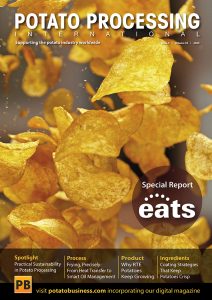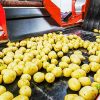Irish Growers Call for Blight Controls as Debate Intensifies over Non-Commercial Crops

Concerns over late blight control and product availability dominated discussions at a recent Teagasc farm walk held in County Meath, as Irish potato growers raised alarms about the fairness and efficacy of current disease prevention practices.
While commercial producers reaffirmed their commitment to rigorous blight control, some expressed frustration over what they described as an uneven playing field. Particular criticism was directed at the risks posed by garden-grown, allotment, and organic potato crops, which do not typically benefit from fungicide protection. Several attendees argued that such non-commercial plots pose a serious threat to national crop security and even called for government-imposed bans on amateur potato cultivation.
The debate underlined the urgency facing the sector as late blight strains continue to evolve. Teagasc plant disease specialist Dr. Steven Kildea stressed the importance of integrated pest management (IPM) techniques but acknowledged that immediate solutions still depend on the judicious use of existing fungicides.
“In the here and now, we have to ensure that the fungicide chemistries available to the potato sector are used to best effect,” said Dr. Kildea. “Such an approach should also ensure the optimal longevity of these products.”
He added that while breeding for resistance is a key component of long-term strategy, it is not a panacea. “There is no doubt that fungal strains will evolve to counter the blight-resistant properties of new potato varieties that we can breed. What we are looking at is a continuing battle – the grower versus the various blight strains that impact on Ireland.”
Teagasc also highlighted the continued relevance of weather-based blight alerts provided by Met Éireann. However, Dr. Kildea cautioned that these should be complemented by field-level observations. “Heavy dews can create conditions that are conducive to blight even during periods of dry weather,” he said.
In a more positive development, BASF announced the availability of a new fungicide—Privest—featuring ametoctradin as its core active ingredient. Already launched in the UK, Privest is registered in Ireland for early-season application and has been included in the 2025 Teagasc blight programme at the rapid canopy growth stage.
BASF has stated that current stocks are sufficient to meet Irish demand. Nonetheless, several growers in attendance reported difficulties in sourcing the product locally.
As pressures mount on the potato sector to maintain high standards of crop health amidst evolving biological threats, the event in Co. Meath underscored both the critical importance of effective disease management and the structural tensions within the broader production ecosystem.

















